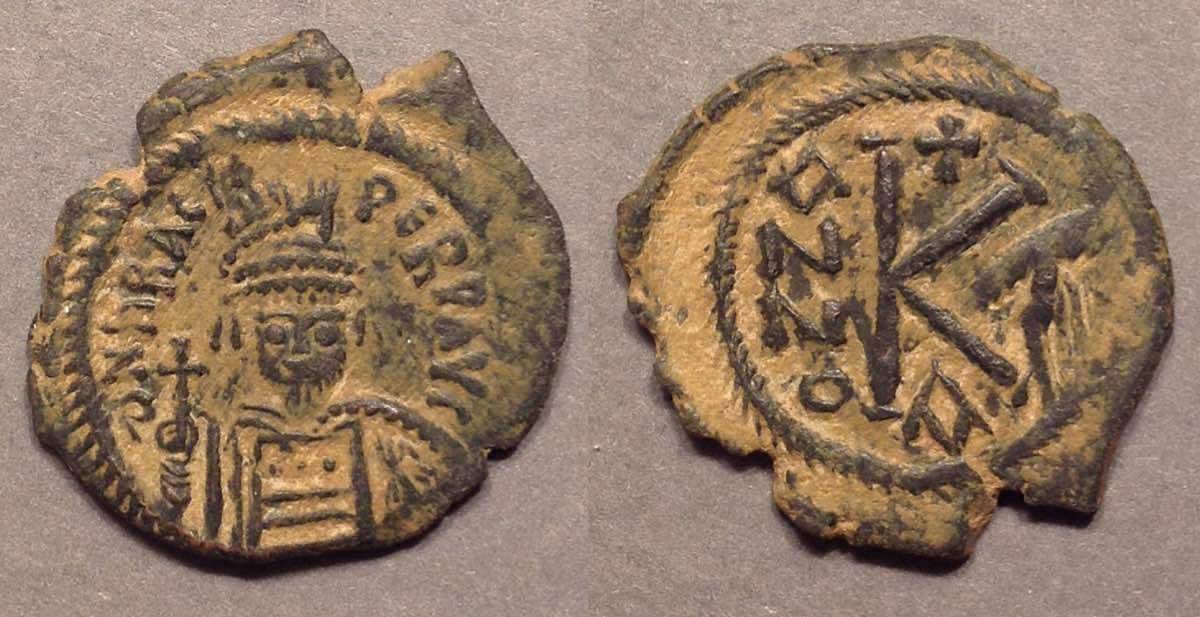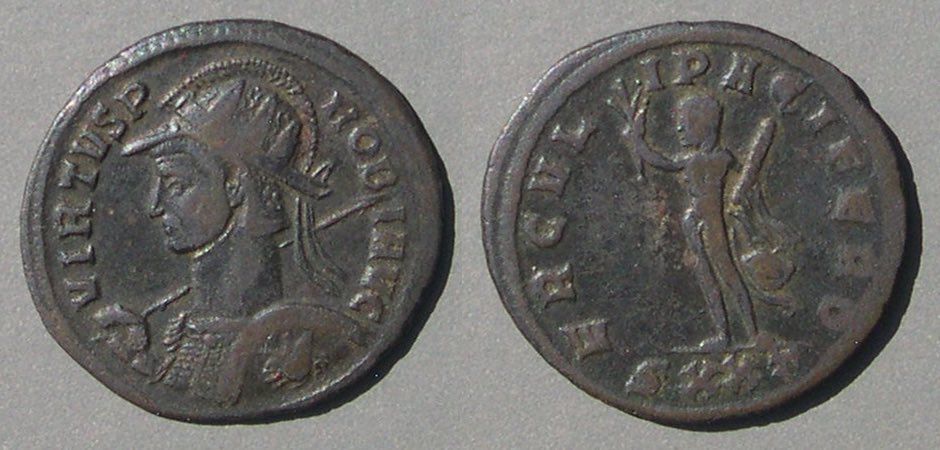The name of Heraclius (610-641)
Collectors wonder how to pronounce ancient names. If you collect Byzantine coins and seek a coin of Heraclius you might like an AE example with much of his name clearly legible (Unfortunately, many of his AE coins have little of his name legible in the legend). Also, you’d like to know how to pronounce his name.
Is it
Hair ah CLAY us
Hair ACK lee us
or is the H not aspirate, like this
air ACK lee us,
air ah CLEE us,
air ah CLAY us,
or what? [By the way, see below for the best guess which is none of these.]
This coin is relevant because the legend is unusually clear:
 Heraclius. Half-follis.
Heraclius. Half-follis.
25-23 mm. 5.22 grams.
Sear 842
We spell his name “Heraclius”. The coin legend is
∂N hRAC-PERP AVG
So, in “hRAC” is the “h” a Greek “H” [eta]? Why does the name begin "hR" and not "HER"?
I connected with my good friend and Byzantine expert @Voulgaroktonou. He wrote me,
“The name [Heraclius] begins with an aspirated Eta: Ἡράκλειος. In Classical Greek, the aspirate would have been voiced, and with the stress on the alpha, would have sounded something like
Hair ACK lee us.
In modern Greek, it is unvoiced, so Ἡελλας (Greece) is pronounced Ellas. There is evidence that the sounds of Greek were shifting to the modern pronunciation as early as the Roman period, so it is a safe bet that the name would have had an unvoiced aspirated eta. Also, the modern pronunciation of eta is “eeta”, not “aita”, so most likely the name sounded like EerAKLios to contemporaries.”
Back to the coin. Where we might write his name beginning with “HER” (and aspirating the “H”) instead of “ER,” it seems the Byzantines did not need the aspirate letter.
You can see the change in pronunciation as early as the third century, for example, on this coin of Probus (276-282).

Probus.
24-22 mm. 3.59 grams.
ERCVLI PACIFERO, Hercules standing left with olive branch and club.
Notice the spelling of "Hercules" does not include an initial "H".
RIC 383v Ticinum.
Sear III 11984.
Conclusion. Coin evidence suggests pronouncing the name
ear ACK lee os or ear ACK lee us
(alhough actual pronunciation heard at talks and coin shows may vary all over the map.)
Go to the paragraphs on Heraclius on the pages "Introduction to Byzantine Coins."
Go to the main Table of Contents page for this entire educational site.
 Heraclius. Half-follis.
Heraclius. Half-follis.